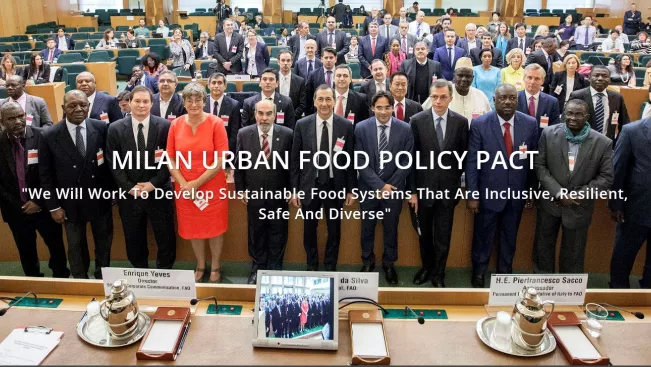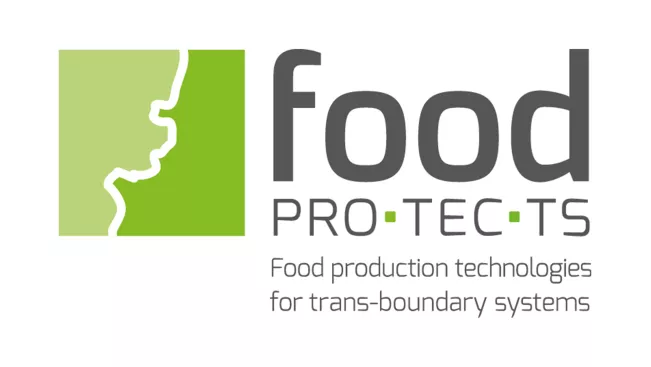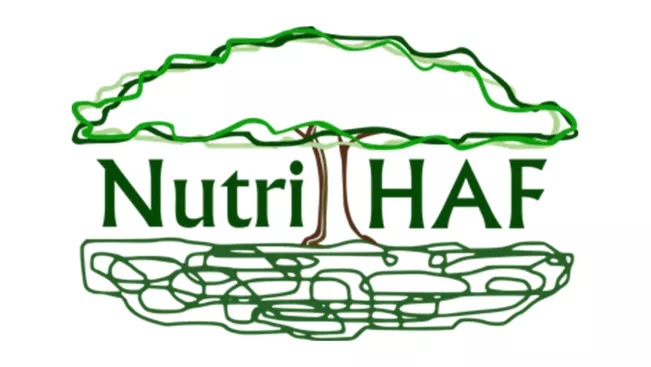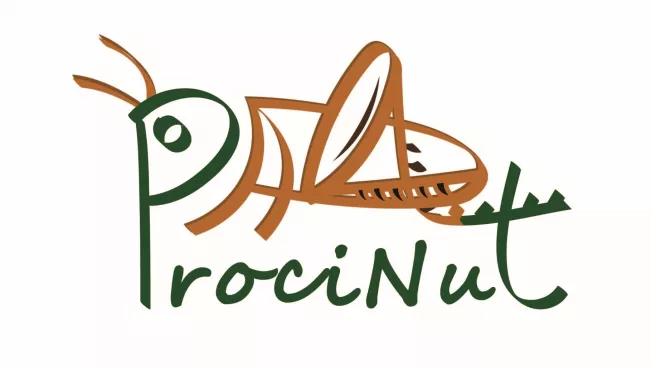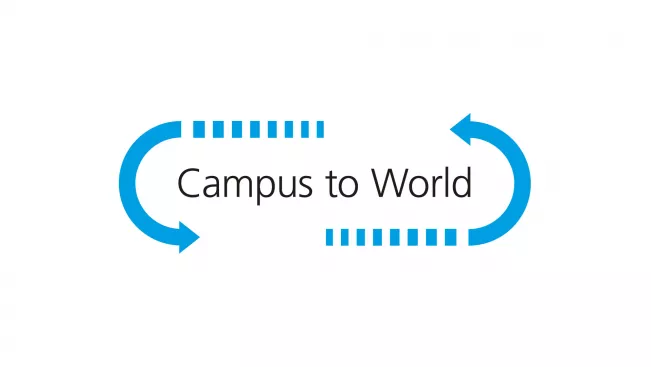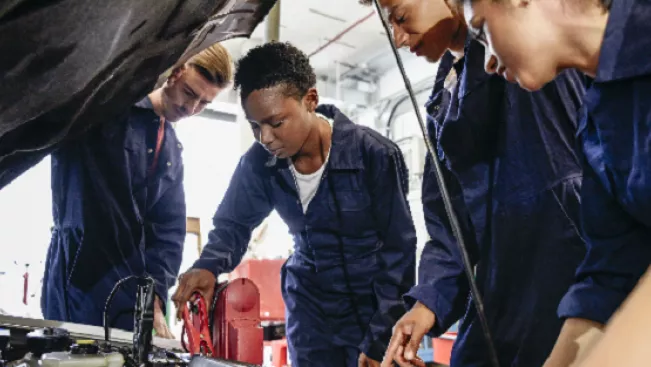Research at the university
Research Database: Projects
Research Projects (185)
The development of sustainable electromobility is one of the social challenges our time, which is considered in the research project eTa. The energy efficiency of vehicles is addressed in aerodynamic projects and optimized operating strategies. In particular, non-classic vehicle concepts are in focus. Alternative mobility concepts based on non-fossil fuels need new supply structures. The optimized expansion of the loading infrastructure is therefore another issue. But even the best mobility concept is useless if it is not accepted by society and implemented by politics and business. Therefore, acceptance questions are a central element of eTa, which will be further developed. The following areas are addressed primarily by the need to reduce energy consumption: Efficiency of the vehicles Alternative mobility concepts Efficiency of mobility concepts Technical acceptance In particular, these are questions which arise only from the combined consideration of these subject areas and are usually not fully answered in classical manner. Examples of this are optimization of hybrid controls for muscle-electric hybrid light vehicles and study of the aerodynamics of ultralight vehicles where results of the classic wind tunnel tests often do not correspond to the results of the practice. Other topics that we are dealing with are predictive operational strategies for electric combustion hybrid vehicles and loss optimization, optimization of multi-stage placement of charging stations, acceptance of alternative mobility concepts.
Project management at the H-BRS
Prof. Dr Alexander AsterothBy signing the Milan Urban Food Policy Pact (MUFPP), the local government of the city of Cologne recognizes that a more actively oriented food policy is necessary. Such a rethinking of the current global food system seems timely and innovative. On a global level, similar examples can be seen, which already show first progress. Worldwide, 133 cities have signed the Milan Urban Food Policy Pact; following the signing, food councils or similar multi-stakeholder platforms have been established in some of these cities.
Project management at the H-BRS
Prof. Dr Wiltrud TerlauResearch project for the (further) development of innovative energy meteorological methods for satellite-based forecasts of irradiation and PV power at plant level.
Project management at the H-BRS
Prof. Dr Stefanie MeilingerFood Pro.tec.ts was developed to be able to bring high-class, technological innovations to the German-Dutch economic area. In the project, companies from both countries cooperate with innovation experts within different technology clusters with the aim of jointly developing new and novel technologies and learning how to use them. The sub-project "Food Pro.tec.ts Biomass" analyses in one of 8 work packages the material and energetic use of biomass by means of Hydrothermal Carbonization (HTC) and new fertiliser technologies.
Project management at the H-BRS
Prof. Dr Martin HamerTwo billion people worldwide suffer from the consequences of inadequate nutrition and micronutrient deficiencies, which result in physical weakness, disease and, in extreme cases, death. Against this background, the German Federal Ministry of Food and Agriculture (BMEL), with the support of the project executing agency Federal Agency for Agriculture and Food (BLE), is funding four German-African research consortia with a total funding amount of around 4.5 million euros for the next three years.
Project management at the H-BRS
Prof. Dr Martin HamerFood Pro.tec.ts was developed to be able to bring high-class, technological innovations to the German-Dutch economic area. In the project, companies from both countries cooperate with innovation experts within various technology clusters with the aim of jointly developing new and novel technologies and learning how to use them. The sub-project "Food Pro.tec.ts Knowledge Transfer" develops exercises, trainings and knowledge transfer for consumers and users of new technologies in one of 8 work packages. The work packages focus on the development of sustainability and CSR management, communication as well as education strategies to promote a common understanding of sustainability in the Rhine-Waal region. This is the basis for the development of trend-setting technologies and processes that meet the ecological, ethical, social and economic market requirements. Through these developments, the competitiveness of SMEs in the agricultural and food industry in the Rhine-Waal region is secured in the long term. The reputation of the Rhine-Waal region beyond regional borders as an attractive and sustainable business location is strengthened.
Project management at the H-BRS
Prof. Dr Martin Hamer Prof. Dr Wiltrud Terlau Isabelle HirschThe project intends to better exploit the potential of edible insects for nutrition. It explores different processing technologies of local insect species and expands small-scale commercial production and processing activities. The goal is to produce safe and nutritious end products that fill seasonal gaps, increase household food security, and improve the income situation of poor women in Madagascar and Myanmar. The network coordinator is the Center for Development Research ZEF at the University of Bonn.
Project management at the H-BRS
Prof. Dr Martin Hamer Isabelle HirschThe international Summer School "Green and Social Entrepreneurship for Biodiversity Conservation and Local Development" will take place from November 4 to 11, 2018 in the South African province of KwaZulu Natal and is jointly organized by a network of the following African and German partners.
Project management at the H-BRS
Prof. Dr Wiltrud TerlauBonn-Rhein-Sieg University of Applied Sciences has adapted its existing transfer instruments to the changing demands and requirements of business and needs of business, society and science and developed new suitable transfer mechanisms. The project was funded by the federal-state initiative "Innovative University".
Within the framework of the NRW-Ghana Partnership and the funding program "NRW-Partnerships for the Promotion of Technical Universities in Ghana", the Ministry of Innovation, Economy and Research (MIWF) has been funding the university partnership project "Partnership for Applied Sciences - PASS" between the Bonn-Rhein-Sieg University of Applied Sciences (consortium leader), the Cologne University of Applied Sciences, the International University of Applied Sciences Bad Honnef and the two Ghanaian universities Kumasi Technical University and Cape Coast Technical University through the German Academic Exchange Service (DAAD) since 2017.
Contact Points
Centre for Science and Technology Transfer (ZWT)
Room
F 405
Vice President Research and Young Academics
Campus
Sankt Augustin

